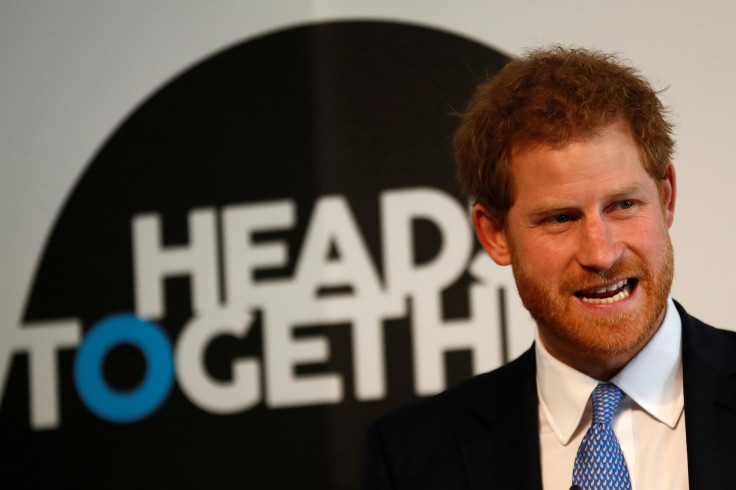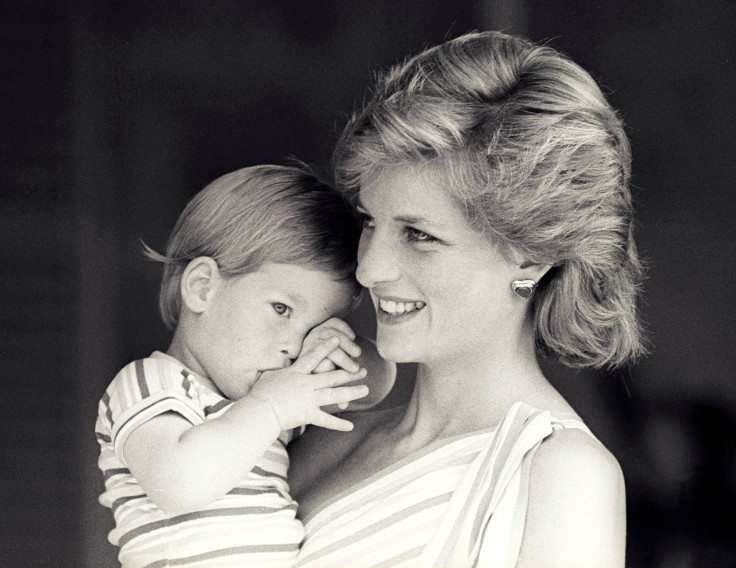How Prince Harry And Prince William Have Broken From Royal Protocol To Discuss Mental Health

The British Royal family has historically remained tight-lipped when it comes to discussions about their personal lives or publicly acknowledging certain painful realities.
But there's been a changing of the guard: Prince Harry came forward in an interview with the Telegraph to discuss his struggle in the wake of his mother’s death. Both Harry and his brother Prince William, the Duke of Cambridge, have acknowledged that they had difficulty in the years after the untimely death of their mother, Diana, Princess of Wales, who was killed in a car accident in Paris in 1997.
However, it was Prince Harry’s candid and open conversation regarding his decision to seek treatment to deal with his grief that marked a new and radical shift in standard royal protocol. He spoke of his struggle during a podcast with the Telegraph, which was released Monday.
“I can safely say that losing my mum at the age of 12, and therefore shutting down all of my emotions for the last 20 years, has had a quite serious effect on not only my personal life but my work as well,” Harry told Bryony Gordon on an episode of Mad World.
Harry’s decision to seek counseling after what he described as two years of “total chaos,” was a decision he reached after encouragement from his older brother William. He described his late 20s as being the most difficult and has taken steps to care for his mental health.
Prince William has been vocal in the past about the hardship he endured following his mother’s death, as well. Last August, the royal visited the Keech Hospice Care in Luton and William spoke with a young teen who had lost his mother to cancer.
“I know how you feel, I still miss my mother every day and it’s 20 years after she dies,” William told Ben Hines, then 14, of his experience. He expressed that it was important to seek out help and to talk with family. “The important thing is to talk about it as a family. It’s OK to feel sad; it’s OK for you to miss her.”
The 20-year anniversary of Diana’s passing will take place on Aug. 31, 1997. The royal brothers have marked the anniversary by commissioning a statue of their mother at Kensington Palace, according to the New York Times.
William, Harry and Catherine, Duchess of Cambridge have made mental health a primary target of their foundation, The Royal Foundation of The Duke and Duchess of Cambridge and Prince Harry. The young royals have used the organization to work with charities that focus on youth, nature conservation and mental health. The Royal Foundation partnered with Heads Together, an organization that works to raise awareness around the stigmas of mental illness and that offers services to assist those experiencing mental health challenges.

Following Harry’s interview, many came forward to express their gratitude that a powerful world figure had come to the fore to discuss a struggle with something like mental health – particularly a member of the British royal family, a monarchy that has prided itself in reigning for centuries with a stiff upper-lip.
Queen Elizabeth II has been a poster child for the pre-World War II British slogan “Keep Calm, and Carry On,” but in past years, the monarch has been accused of “ostriching” (sticking one’s head in the sand) to avoid dealing with difficult or emotional situations.
She was famously chided for not coming forth sooner to address the public’s grief surrounding the death of her daughter-in-law.
In his interview with the Telegraph, Harry described his initial way of coping with his mother's death. “My way of dealing with it was sticking my head in the sand, refusing to ever think about my mum."
Princess Diana could be credited with creating “disruption” within the famous family. She had struggled with depression in the past and found it difficult to find support within her new family.
In the 1999 biography on Diana, “Diana in Search of Herself: Portrait of a Troubled Princess,” Sally Bedell Smith quoted a friend of the queen acknowledging the royal family’s inability to deal with the young princess’ strife. “They are a very matter-of-fact family,” the friend had said. “They would find it difficult to understand a difficult girl who was very young and having a hard time learning to cope. But someone should have done something.”
“Maybe I was the first person ever to be in this family who ever had a depression or was ever openly tearful,” Diana was quoted to have said in the book. “Obviously this was daunting, because if you’ve never seen it before, how do you support it?”
William and Harry have taken steps to answer that question in their adult years. They have taken the subtle steps towards ending one legacy of “ostriching” in favor of creating one that Diana might have preferred – one of honesty and open acknowledgment.
© Copyright IBTimes 2024. All rights reserved.






















